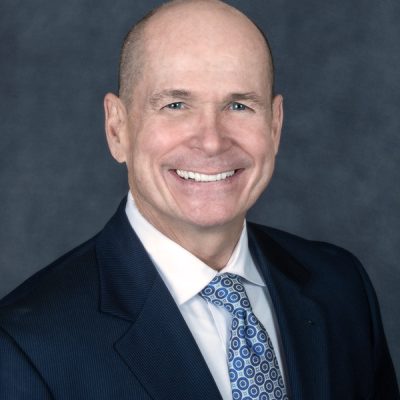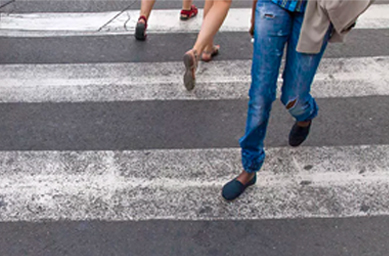Most people are familiar with civil and criminal laws regarding drunk driving: Drive intoxicated and you can be charged with a crime; hurt someone while driving drunk and you can be held liable for their damages.
In a perfect world, personal injury claims arising from drunk driving accidents would play out in as straightforward a manner as mentioned above. Unfortunately, that’s not always how it works, especially when there are factors which may limit or hinder a victims’ ability to recover the full scope of their damages – whether that’s because the driver who caused their wreck was uninsured or underinsured, there are challenges to fault and liability, or some other reason.
In these and any injury case where compensation is critical to victims and their families, exploring other avenues for liability can be crucial. In some cases, it’s worth looking into dram shop laws and third-party liability as a means to recover additional compensation.
Why Explore Dram Shop Liability?
Drunk driving accidents happen with alarming frequency, and can involve any number of circumstances. As with other types of car accidents, however, injured victims can face additional challenges when it comes to securing needed compensation from at-fault parties. This may be caused by several different issues, including:
- An uninsured or underinsured motorist;
- Catastrophic injuries which result in more severe damages;
- Hit and run accidents where at-fault drivers cannot be located;
- Criminal arrests, convictions, and imprisonment of drunk drivers.
A lack of available insurance coverage and other hindering issues means that unless drunk drivers are independently wealthy, or have enough money to spare, they’re not likely to have the means to pay for damages they’ve caused victims.
In these circumstances, exploring other avenues for compensation can become critical. This may involve seeking compensation through a victim’s UM / UIM insurance (if they’ve purchased this additional coverage, which every driver should consider doing), or from another at-fault party that caused or contributed to the crash (such as another motorist, or an employer if the intoxicated driver at fault was working at the time).
In some limited cases, it may require victims to determine whether third parties can be held liable under dram shop doctrines.
Does Florida Have a Dram Shop Law?
Florida, along with 42 other states and Washington DC, does have a dram shop law which can make those who serve alcohol to customers or guests liable for damages which result from the intoxication of those guests / customers. Typically, that means a car accident involving a drunk driver. However, it can also include other alcohol-related accidents where intoxication was the proximate cause of a workplace accident, premises accident, or some type of preventable injury.
Dram shop laws can allow drunk driving accident victims to hold third parties liable, which can be very important for victims who find themselves facing barriers to needed compensation (i.e. uninsured motorist, limited coverage, etc.). There are of course exceptions to every rule, and when it comes to dram shop laws in Florida, there are many.
Limited Liability in Florida Dram Shop Cases
Florida’s dram shop law is quite limited in comparison to laws in other states. In fact, Florida Statutes § 768.125, adopted in 1980, does not allow bars or social hosts to be held liable for damages caused by most drunk drivers of lawful drinking age, nor does it hold licensees liable for serving alcohol to “visibly intoxicated patrons” as similar laws do in other states. There are, however, two primary exceptions.
Florida’s dram shop laws limit bar and social host liability to the following situations:
- Serving Minors – A bartender or social host who serves alcohol to a minor (under the age of 21), regardless of whether they charge money for doing so, can potentially be liable if that minor’s intoxication is the underlying cause of a subsequent drunk driving accident.
- Serving “Habitually Addicted” Persons – Bars can potentially be liable for damages caused by intoxicated patrons they’ve served if that person is someone “habitually addicted” to the use of alcohol, or generally a known alcoholic.
In both situations involving minors or “habitually addicted” persons, there are additional legal requirements for third party liability:
- Bars / Hosts Acted “Willfully” When Unlawfully Serving Minors – Florida’s dram shop law requires bars, restaurants, and social hosts to have acted “willfully” (not merely negligently) when serving minors alcohol. The key factor in these cases is proving a bar or social host knew, at least to some extent, what they were doing. A person who sells alcohol to a minor with a convincing fake ID, for example, may not constitute the “willful” conduct required for liability. In some cases, liability may exist when vendors sell alcohol to adults knowing the alcohol will be consumed by a minor.
- Bars Acting “Knowingly” When Serving Habitually Addicted Persons – Similar to situations involving alcohol furnished to minors by vendors (but not private social hosts), bars may potentially be liable for damages caused by intoxicated patrons or guests when they knowingly served a person with a known history of alcohol abuse (habitually addicted).
Takeaways About Florida’s (Limited) Dram Shop Law
Florida’s dram shop law creates a very narrow scope of potential liability for bars and alcohol vendors, and an even smaller scope of liability for social hosts. It also places requirements on plaintiffs who pursue dram shop claims to prove particular elements required by law (i.e. willfully or knowingly serving minors, demonstrating that someone is “habitually addicted” to alcohol, etc.)
The key issues in Florida dram shop cases are that:
- Florida’s dram shop law limits liability only to situations where drunk driving victims are injured by minors or known alcohol abusers served by bars and / or social hosts;
- Florida law requires that bars or social hosts acted willfully or knowingly when serving minors and / or habitually addicted persons; and
- Social hosts of private gatherings cannot be held liable for providing alcohol to known alcoholics who later cause crashes. They may only be held liable in cases where they willfully furnished alcohol to a person under the legal drinking age.
Civil Injury Claims for Dram Shop Liability / Drunk Driving Accidents
Bars and social hosts that violate laws pertaining to serving minors can face penalties for their actions – social hosts, for example, can have their driver’s licenses suspended for serving alcohol to minors, per Florida Statutes § 322.057; vendors may be fined or lose their liquor licenses.
Though these third parties may face consequences for their actions, they are not compelled to compensate victims automatically. Victims must pursue civil injury claims against the third parties they allege are liable under Florida dram shop law in order to seek a recovery of their damages, including their medical bills, pain and suffering, and lost wages, among others. Of course, prevailing in a claim is no easy feat; it demands the attention and support of proven attorneys.
Todd Miner has been fighting on behalf of injured victims and families across Orlando and the state of Florida for years. A former prosecutor and former insurance defense attorney for one of the largest insurance companies in the country, attorney Todd Miner knows how the “other side” operates. Todd know what lengths insurance companies will do to in order to evade liability and avoid paying victims the money they deserve. Let Todd and his team of experienced lawyers and staff fight for what you deserve.
Call 407-214-4743 or contact us online to discuss your rights and options following a drunk driving accident, alcohol-related accident, or any preventable motor vehicle crash.








